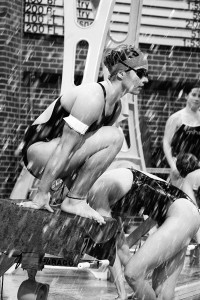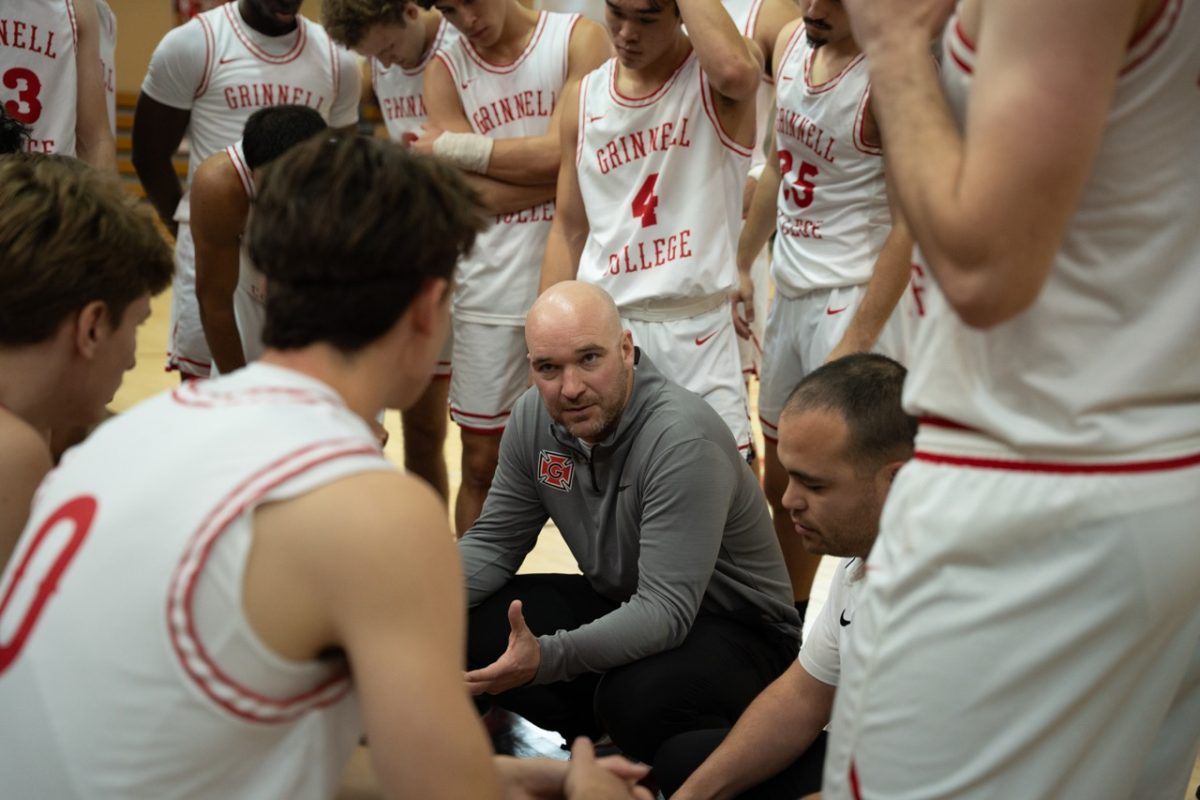
“When I was born I had a small foot on my left side at about the level of my right knee.” Williams said. “Basically, my left femur didn’t form so it’s a ball of bone up in my hip region.”
As a newborn, she then had surgery performed at Shriners Hospital for Children in St. Louis, Miss. to remove the malformed limb and since then she’s lived a healthy normal life. And since then she hasn’t let her leg inhibit her life in any way. Even early childhood memories of learning to walk, run and play weren’t defined by the missing limb.
“Even now I am sometimes startled when I walk by a mirror and see myself limping,” Williams said.
Claire credits her strong family support as her foundation for an active life.
“My parents have supported me in every athletic or physical thing that I’ve tried,” Williams said. “I also ride horses competitively and occasionally race sailboats with my parents or their friends, and played soccer when I was much much younger, and never treated me any different than my younger brother, whose limbs all function correctly.”
It should come as no surprise then that Williams’ parents were the instigators for Williams to begin swimming over a decade ago. Initially, Williams was a little nervous around water.
“My parents put me in swim lessons when I was little, because I started being afraid of bathtubs.” Williams admits.
Claire’s parents were avid swimmers and, after helping Williams get over her fear of bathtubs, they also encouraged her to swim. Williams began swimming competitively on and off starting at age 10.
In high school, she competed in the 500 freestyle & 100 butterfly and as a senior, she placed sixth in her sectionals competing along side able-bodied swimmers. She currently competes in the 200 butterfly here at Grinnell.
This is her first year in a new conference and that means a lot of new eyes and initial impressions. In a swimsuit, competitors are quick to judge. However, any notions made on deck are quickly scrapped once everyone hits the water.
“I don’t identify as being disabled,” Williams said, “When I compete the fact that I have one leg is not an excuse not to race or go my hardest. Basically, I don’t think of myself as someone who is disabled even though I only have one leg.”
Her spirit clearly shows through her dedication. Erin Hurley, Head Coach of Grinnell Swim team, is one of the individuals who witnessed it most this season.
“She is extremely talented,” Hurley said. “She is the type of person who doesn’t draw attention to herself looking for accommodations.”
Of her 13 seasons here at Grinnell College, Erin has never coached any disabled swimmers. Claire Williams and Claire Forrester ’13, another first-year, are the first.
“It has been a new experience for me” Erin said. “It has helped us all become more aware of our differences.”
With such a large team and so many talent levels, Williams and Forrester fit right into the team. But competing among able-bodied swimmers isn’t always easy for Williams though.
“There are definitely some days that are frustrating”, she said, “but it’s really about do it for yourself, and go hard.”
It’s when people write her off that Williams get most frustrated though. She breaks the reactions of people down into two categories “ignoring/acceptance” and “the inspiration.”
“Occasionally I’ve had swimmers or coaches—mostly coaches—come up to me at meets and tell me that I inspire them,” Williams said. “I don’t like this because I‘m there to race just like they are and I’m doing the same races that they are. By calling me an inspiration they are calling direct attention to my physical disability and placing me in the role of the token disability swimmer, and since I don’t identify as disabled it’s rather frustrating to be forced into that identity by someone else.”
Notwithstanding stares, cheers and all, Claire is possibly looking at a larger goal, namely, the 2012 Paralympic Games in London. Claire’s history with this athletic event trails back to her middle school days. At the age of 14, her disability coach encouraged her to compete in a meet that she didn’t know to be the Paralympic Trials, but she finished with the top mark and qualified for finals in the 400 freestyle.
“I wasn’t tapered or anything,” Williams said. “My coach was like you should go to this really big meet and hey by the way its Trials.”
Now as the Paralympics come into focus again, Williams is considering giving it a more serious go.
“I would like to go to Paralympics,” Williams said. “It’s been in back of mind, but not really concrete goal.”
But she isn’t without ulterior motives.
“My dad told me that if I made it to the Paralympics, he would pay to have things tattooed on me if I wanted them,” she said.
For now, she plans to focus on her training her at Grinnell where she feels she’s having a great experience.
“Its been really good, I really like the system of our [rate of perceived exertion]” Williams said.
“A lot of different people of different abilities can swim the same practice and get the same from it. Erin [Hurley] is fantastic coach—she is really good about knowing what level everyone is.”
Claire truly represents the success that one can achieve through resilience in athletics. Claire’s message to anyone else aspiring to become a great swimmer is simple.
“Just try, just get in the water and try. Chances are it’s going to work.”



















































